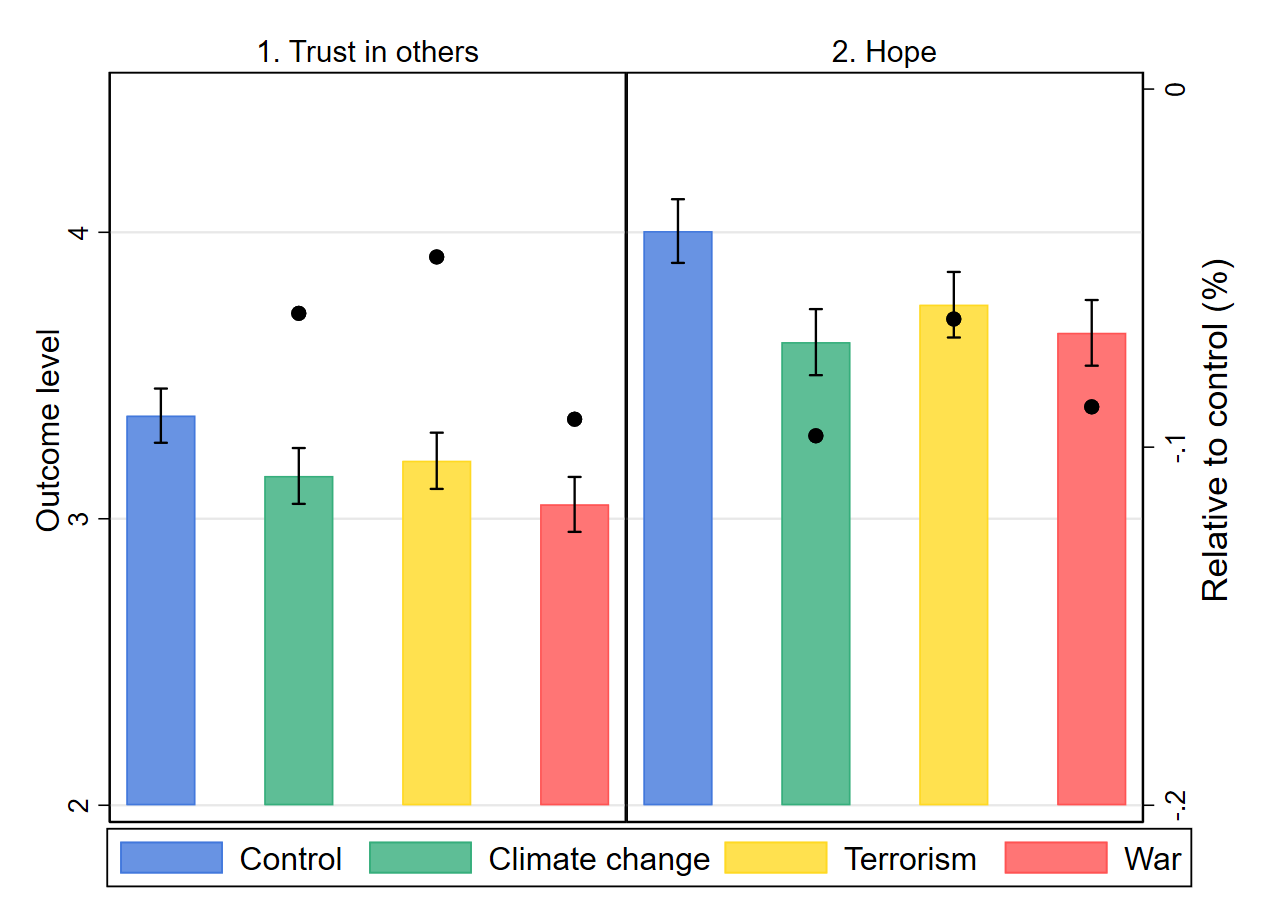Submitted
Trust in others is vital for the well-functioning of societies. While economists often study its longer-term determinants—through culture, past shocks or state interventions—short-term fluctuation may be equally critical, particularly during key moments (e.g, elections) or when social cohesion is needed (crises). Hope, though less studied, is just as crucial for individual well-being, behavior, and societal stability. We investigate the short-run plasticity of trust and hope by reactivating threats similar to those encountered in the media. We randomly expose individuals online to videos depicting terrorism, natural disasters, or war. Social trust and hope are malleable: they decline by 12%-28% of a standard deviation (across models) in response to these brief interventions. We find strong heterogeneity, depending on political orientation and social media usage particularly, and explore co-movements with basic emotions. This paper shows that routine threat exposure can unsettle the emotional foundations of trust and hope, which may in turn affect key behaviors—highlighting the need for research into resilience and mitigation strategies.
